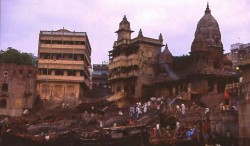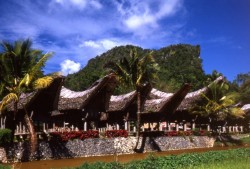In Search Of An Ultimate Ethos
With each passing year science and philosophy continue to offer more rational and persuasive explanations suggesting the original force from which all existence springs may contain a distinctive intelligence. Those who’ve never doubted the existence of such a creative, thinking ultimate power have traditionally assigned such an entity a wide variety of different names. The theistically inclined freely use the word “God” to personify this cognitive cosmic source. Those more circumspect favor such titles as Initial Being, Ground of Being, Cosmic Awareness, Ultimate Intelligence, Essential Consciousness, The One, The All or dozens of other cautiously crafted appellations. By any other name, the attributes we ascribe such a force show a predictable similarity. For most, such an entity would be imbued with three core attributes: initial creative power, Ultimate intelligence and moral authority. While the implications of the existence of any of the above characteristics are unfathomably significant, we mere humans seem particularly obsessed with the morality issue.
You are invited to Read More



